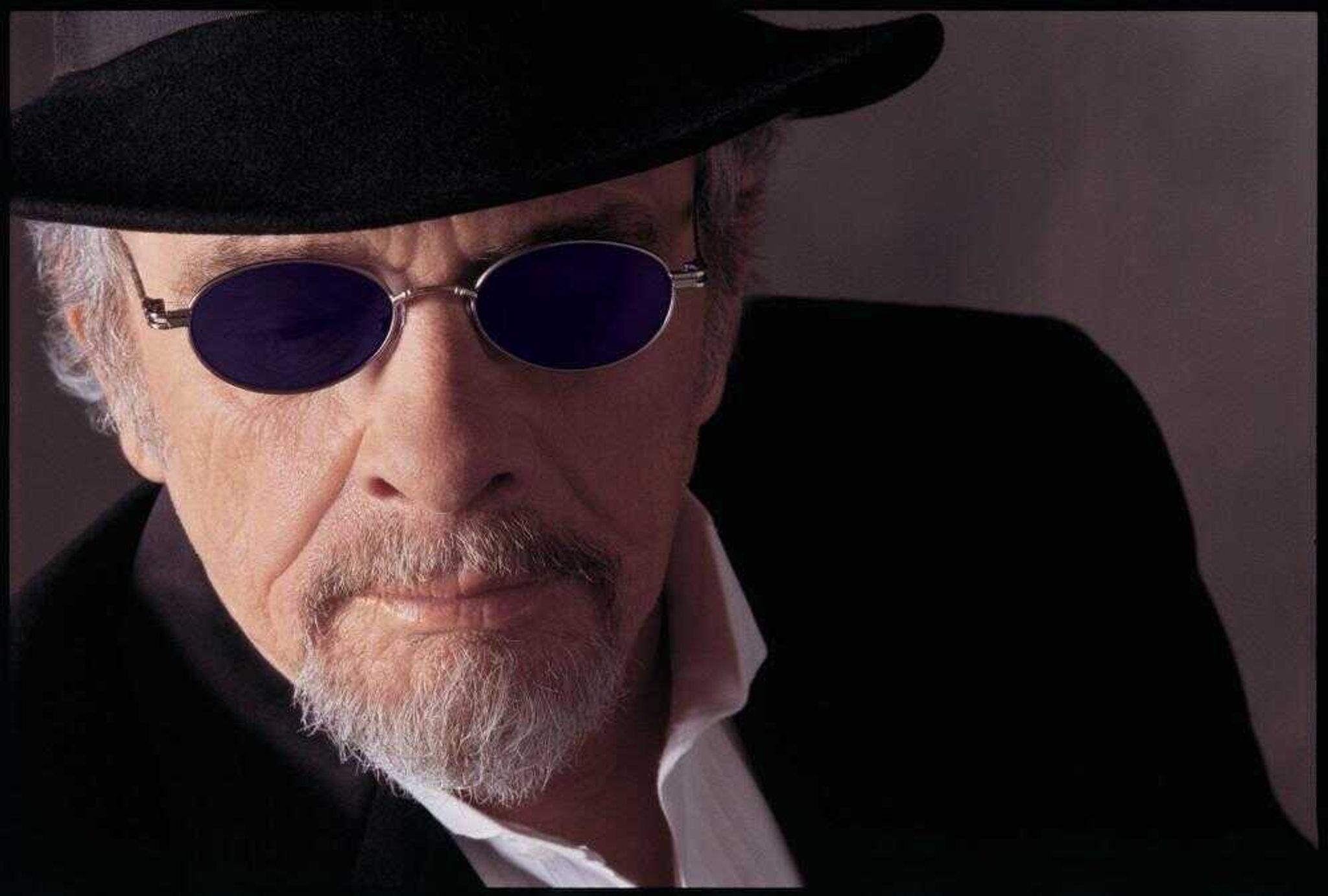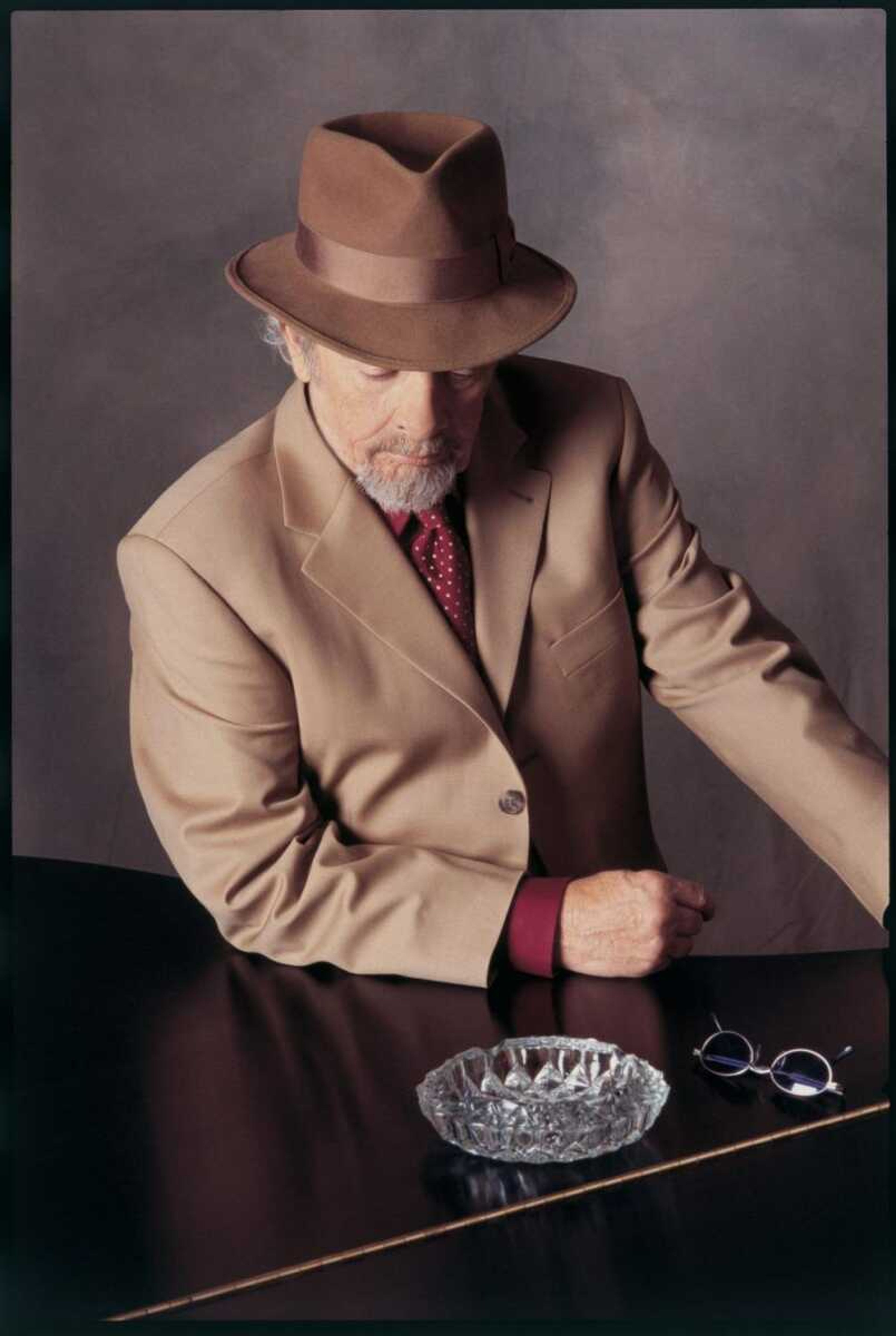In his four-plus decades in country music, Merle Haggard has more than established himself as a legend and an icon.
Who doesn't know the stories about his youth spent in and out of jail and his encounter with Johnny Cash at San Quentin?
Even approaching his 70s, Haggard is still making the same kind of traditional country that made him who he is, most recently teaming up with Ray Price and Willie Nelson for the aptly titled "Last of the Breed."
On Tuesday he'll perform at the Show Me Center. Haggard phoned in earlier this month, taking a break from the treadmill and his new, clean lifestyle to talk with the Southeast Missourian about life, music and politics.
Matt Sanders: You've worked with just about every big name in classic country, but what was it like making this latest disc with Ray Price and Willie Nelson?

Merle Haggard: It was extremely entertaining, I think for all of us. It was fun because we've been friends for nearly half a century and so it wasn't hard to find something to laugh at. Don Helms came by and several people ... came around to watch the thing be put together, and it was a lot of fun.
MS: Does the name of the album reflect how you feel about yourself and these other classic country artists?
MH: It's a matter of aging fact, I guess. We have to get old also.
MS: Are things different for you after all these years of making music?
MH: I was just reading a book here that says you've gotta exercise twice as much, you gotta watch your health twice as good. It becomes a real challenge to try to keep yourself healthy as you get older. It's just a hard thing to do. Gravity's working against you. There's not much anybody can do about it except keep yourself busy and drink lots of water.
MS: I've heard you've given up the excesses of your younger days.
MH: You can't do cocaine no more. You can't drink anything except water. If you do, you'll pay a heavy debt for it. It's a matter of fact.
I never got that far into [cocaine]. I did it for five months one time; I got into a feel-sorry-for-myself kind of attitude, divorcing a woman and all that, and I dabbled in that stuff for the year of '83 for about five months. When I got shut of it, I was through with it and I never had to worry about that kind of thing again.
I've quit drinking coffee, I've quit drinking booze, I've quit smoking Camels, quit tobacco and all that stuff by the year of '91, so I've been what you'd call squeaking clean. It's not the right thing for everybody, but it was right for me.
MS: You've made some statements in the past really bagging modern country. What's your view on country music today?
MH: I think it's hard to tell unless you see the artist in person, because unless they have a reputation and you know it, and you see them in person, it's hard to tell nowadays whether or not it's some sort of electronic mechanism that's keeping them in key or whether it's an actual talent that you're listening to. So you have to get to know these people to find out whether or not they're real. It's hard to tell.
And some people don't care whether they're real.
MS: What do you listen to today?
MH: Well, I've been listening to -- Bob Dylan had a new album, that's about the only thing that's current ... but I mainly listen to what I always listen to. I'm still entertained by the greats that inspired me to be in this business such as Jimmy Rogers, Bob Wills, Hank Williams, Lefty Frizzell, Johnny Cash, Ernest Tubb, Marty Robbins, Frank Sinatra, Bing Crosby. I liked all kinds of music when I was a child. I still get out those old recordings every now and then and listen, but with such availability now, you've got these storage systems where just in a matter of seconds you can conjure up anything you want. So I've been listening to some records that I hadn't heard in years. I listened to a record yesterday by a guy named Big Bill Lister. He's from Texas, he's 80 years old, still alive, and he had a song back when I was a child called "Beer Drinkin' Daddy," and I got to looking for that song and in less than 10 minutes I had that recording. It's amazing.
MS: Seems like that availability has really helped up the profile of modern country.
MH: That's certainly an answer to why it's happening. It is happening and there is a bigger interest in my music, and I imagine what you're talking about sure played a part in it.
MS: What was it like to lose Johnny Cash?
MH: It so happened that Johnny Cash passed away at a period where like every other phone call there was somebody that you knew. We lost three guitar players that I'd grown up with and become close friends with. In the year of 2000 we lost Roy Nichols, Chet Atkins and Grady Martin. They were the three guitar players that inspired everybody from me to Keith Richards to play guitar.
Those kind of people, you know, when you start to lose them, then you lose Johnny Cash, you lose this one and that one, and you turn around and you say I'm only three years behind Cash ... all that inspiration is gone and you look around and you're the only ones left, and that's kind of the way it is with this "Last of the Breed" album.
MS: I've also heard that you're working on a bluegrass project right now.
MH: That's right. We got a bluegrass album coming with some awfully great pickers, a bluegrass group that I assembled down in Tennessee with the help of Ronnie Reno and Marty Stuart. I'm really proud of the album that we did. We already finished it, and I imagine it will be early summer by the time we release that.
MS: Ever done bluegrass before?
MH: It's the first time for me and it's about the only ... taste of country music that I haven't tried. It was enjoyable and it was fresh and I think it sounds that way.
I'm easing up on 70 years old and I'm still interested in experimenting, so that's a good sign.
MS: You recently put out a song called "Hillary," and you have a song on a John Edwards fund-raising CD. Do you have a dog in the presidential fight?
MH: I'm a songwriter first of all, and things that come to mind aren't always agreeable with my own political beliefs, but I feel as a songwriter I've got to report it even though I don't agree with it. Not saying that I don't, or would not back Hillary Clinton, but that wasn't the reason for writing the song -- the song came to me and that's the way it came out. I read it, I thought about keeping it secret, then I thought, 'Well why? This is still America.'
I felt that she had some advantage on the other candidates because of her time in the White House. I've been, I guess you'd say, a Republican most of my life, but seems like the things that were once under one banner are under another. If you're Republican now, you're for the war and you don't investigate the war and you just say, "All right, we're having a war and I'm tickled to death about it." Well, I don't like that, so I've gone to the other side. I think that, if I'm going to vote for either side, I'm undecided about all the candidates, and as time evolves between now and 2008, I think probably everybody's going to have second thoughts on who they thought was the right person.
MS: Are you worried about a backlash from conservative listeners?
MH: It certainly enters my mind. I don't know if you'd call it worrying or not. I've always been a person that tried to step up to the plate no matter whether I was gong to be able to hit the ball or not. I have fear as to whether or not people will like me every time I walk out on stage. And you never know what you're going to say or do that's going to turn people on or off and I don't spend a lot of time worrying about it.
MS: I guess that fear of putting yourself out there just never goes away.
MH: You never know. Somebody may shoot your ass. It's true. We're like politicians, we take advantage of the First Amendment -- we say something and somebody may be offended to the point of killing your ass (laughing).
My wife and children, they say, "If you're not afraid for yourself, please consider us." And that's really a factor in this, there's a lot of things I don't go and say because of them. I don't want people coming to my house and blowing my house up.
msanders@semissourian.com
335-6611, extension 182
---
Haggard's musical achievements:
- Nine gold, four platinum albums
- Forty No. 1 country hits
- Ten Academy of Country Music awards
- Three Grammy awards
---
Haggard's troubled past
- April 6, 1937 -- Born to James and Flossie Haggard, who moved from Oklahoma to California during the Great Depression and took up residence in a converted boxcar.
- Age 14 -- After several stints in juvenile detention following his father's death, Haggard runs way from home, going to Texas. He returns to California a few months later and is arrested as a robbery suspect. He didn't commit the crime, and authorities sent him to juvenile hall. Haggard ran away to Modesto, Calif., and worked menial jobs and committed a series of small crimes. He also had his performing debut in Modesto.
- Late 1951 -- Haggard returns home and is arrested again for truancy and petty larceny.
- Early 1952 -- Haggard is sent to a boarding school. He runs away again and is sent to the high-security Preston School of Industry and is released after 15 months. He's sent back after he beats up a boy during an attempted robbery.
- 1957 -- Haggard is arrested for the botched robbery of a diner in California. He escaped from prison the following day to see his family, was recaptured and sent to San Quentin for 15 years.
- 1960 -- Haggard is paroled from prison.
- 1972 -- Then Gov. Ronald Reagan gives Haggard a full pardon for his crimes.
Connect with the Southeast Missourian Newsroom:
For corrections to this story or other insights for the editor, click here. To submit a letter to the editor, click here. To learn about the Southeast Missourian’s AI Policy, click here.








